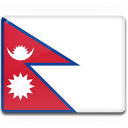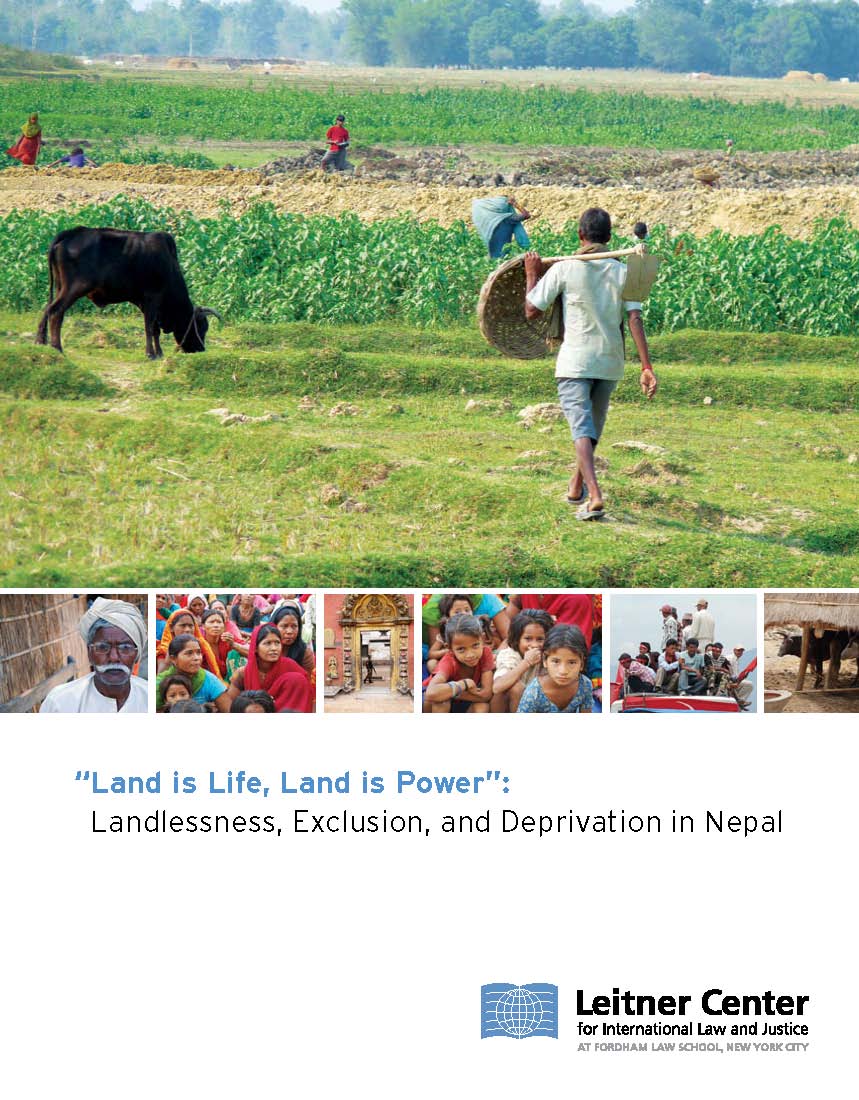
2009 Nepal
 Land access, land tenure security, and related land rights are fundamental bases for the right to an adequate standard of living and are tied to the indigenous, ethnic, and cultural identities of peoples. Yet the problem of landlessness is growing worldwide: A quarter of the world’s population is landless. In Nepal, estimates suggest that over half the population is functionally landless.
Land access, land tenure security, and related land rights are fundamental bases for the right to an adequate standard of living and are tied to the indigenous, ethnic, and cultural identities of peoples. Yet the problem of landlessness is growing worldwide: A quarter of the world’s population is landless. In Nepal, estimates suggest that over half the population is functionally landless.
For two weeks beginning May 9, Fordham Law School Professors Elisabeth Wickeri, Martha Rayner, and James Kainen led a delegation including eight law students on an overseas project that investigated and documented the impact that inadequate access to land has on the rights of landless and land-poor people in Nepal, a country of 29 million in South Asia where landless people are disproportionately indigenous, of lower castes, and are women.
The Leitner Center’s 2009 Crowley Project explored the impact that inadequate access to land has on human rights, including the rights to housing, food, water, and political participation. The delegation also examined the evolving legal framework for landless people to secure their rights in a country emerging from ten years of conflict.
Professors Wickeri, Rayner, and Kainen were joined by two additional human rights experts, Professors Anil Kalhan and Aoife Nolan. The Fordham Law School students who participated in the documentation project were Crowley Scholars Amal Bouhabib, Corey Calabrese, Millie Canter, Benjamin Goldstein, Ganesh Krishna, Noushin Ketabi, David Mandel-Anthony, and Amisha Sharma. The delegation worked with the Kathmandu-based Community Self-Reliance Center.
The delegation conducted wide-ranging interviews with members of the government, the judiciary, academics, lawyers, non-governmental and inter-governmental organizations, land rights organizers, men and women in rural landless communities, landlords, and local leaders whose expertise informed a deeper understanding of the issues. Photos of the documentation trip are available here.
Read “Land is Life, Land is Power”: Landlessness, Exclusion, and Deprivation in Nepal (PDF)
To read more about the current human rights situation in Nepal, please consult:






